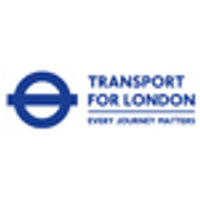
Train Apprenticeships
From steam locomotives and trams to monorails and high-speed trains, trains are the epitome of transport. If you fancy yourself somewhat of a Francis Bourgeois, you can turn that into a very fruitful career.
Whether that's an apprenticeship with TfL or as a rail engineer, there's a role for you. Consider this your guide to rail apprenticeships, what they are and where to find them.

What are rail apprenticeships?
Rail apprenticeships are schemes within the rail industry to give you the skills and knowledge you need to high-speed your way into a long-lasting career involving trains.
Even if you don’t know your locomotives from your TGVs, the great thing about apprenticeships is you’ll learn everything on the job while earning a salary. Whether it’s manning the rail lines, building tech for trains and equipment, or even looking after rail workers in an HR capacity, there is a role for you.
It’s important to remember that apprenticeships are full-time jobs, and you’ll work up to 40 hours a week max. You’ll split that time alongside your official training, whether at a training provider, on-site at your apprenticeship, a college or university.
Rail apprenticeships are perfect because they are hands-on. So if that’s you, it’s worth looking into.
Here’s why an apprentice would recommend doing an apprenticeship with Network Rail:

‘I'd recommend them as there are plenty of job opportunities that can arise from the apprenticeship. Depending on what you go into, you can also learn other skills from the other courses. There are a wide range of jobs, so if you fancy a change then you are able to do so’ Level 3 apprentice, Network Rail
What types of rail apprenticeships could I do?
Train apprenticeships are available in levels 2 through 7, so let’s break this down:
Level 2 (Intermediate)
On completion, equivalent to five GCSEs.
Level 3 (Advanced)
On completion, equivalent to two A Levels.
Level 4/5 (Higher)
On completion, equivalent to a foundation degree.
Level 6/7 (Degree)
On completion, equivalent to a Bachelor’s or Master’s degree.
Find out more about the range of apprenticeship levels available by reading our guide to the types of apprenticeships.
We’ve included examples of some roles in the rail industry below.
RAIL ENGINEER (Level 3)
As a rail engineer, you’ll wear a variety of helmets. A lot of what you’ll do will be on-site and in rail depots, where you’ll be responsible for the build and maintenance of rail tracks and power lines across the network.
There are loads of opportunities to specialise in other aspects of rail engineering, including civil engineering, section engineering and site engineering.
Entry requirements:
At least 18 years old
Three or more GCSEs (including maths, science and English) graded at 9 to 5 (A* to C) or equivalent.
CUSTOMER SERVICE (Level 2/3)
You’ll be a rail customer’s first point of contact. Based in a train station, your tasks will be working in a ticket office and on platforms helping customers with any enquiries, helping to dispatch trains and ticket inspection.
Employers love candidates who are people-focused, friendly and attentive.
Entry requirements:
At least 16 years old
Two or more GCSEs (including maths and English) graded at 9 to 5 (A* to C) or equivalent. If not, you’ll need to take an assessment in maths and English during your training.
POWER (Level 4/Higher)
In this electrifying apprenticeship, you’ll get to grips with rail electrical systems and maintenance. You’ll become highly skilled in thermal imaging, finding system faults, and reading electrical and mechanical drawings.
Entry requirements:
At least 18 years old
Five GCSEs (including maths and English) graded at 9 to 5 (A* to C) or equivalent
Two A-Levels graded at A* to D or equivalent.
PROJECT MANAGEMENT (Level 6/Degree)
Project managers are multitaskers; they're leaders and can see the bigger picture. If that’s you, this is the apprenticeship for you. As an apprentice project manager, you’ll delegate roles, make sure the team works according to schedule and manage social, legal and environmental aspects of each rail project.
Entry requirements:
At least 18 years old
Three A-Levels (in any subject) graded at A to C or equivalent.
Can I become a train driver via an apprenticeship?
Yes! It used to be that the minimum age to start your training was around age 20-21. This was recently changed to be 18 years, and you can become a train driver via a Level 3 Apprenticeship.
Train driver apprenticeships are super exciting, fast-paced schemes that last up to two years.
You’ll spend the first few months undergoing serious training to get your technical knowledge up to scratch, including how to operate train controls such as acceleration, braking and signalling.
Once you’re ready, you’ll start to shadow train drivers and eventually drive trains under supervision. Some of your tasks will include:
Checking controls and equipment before your journey
Inspecting the train and reporting any maintenance or repair needs
Following schedules and timetables
Learning train operations, safety procedures, and regulations.
Although you can apply to become a train driver by applying for a dedicated apprenticeship, train drivers are often recruited in-house. That’s ok - many rail companies have apprenticeships for other areas of their business.
You’ll find plenty of train drivers who were previously conductors, train station staff or had other roles within the rail industry. So if you’re already working in the industry, you’ll have the advantage of already having the skills and knowledge needed.
Who offers rail apprenticeships?
All major rail companies in the UK offer apprenticeships. Even if working directly for a train company doesn’t suit you, there are plenty of infrastructure businesses that offer rail apprenticeships too.
Here are a few companies:
Balfour Beatty Apprenticeships
They’ve been around for 110 years, so you know there’s a breadth of knowledge you’ll pick up as a Balfour Beatty Apprentice. They offer rail apprenticeships across all levels where apprentices will learn about designing, enhancing and maintaining rail lines all around the country. You’ll get the chance to become an expert in some of the following;
Electrification
Track Solution
Power Systems
Rail Plant
And more!
Network Rail Apprenticeships
If you didn’t know, Network Rail owns, operates, maintains and develops Britain’s railway. They offer a variety of rail apprenticeships from Level 3 (Advanced) to Level 5/6 (Degree). These are:
Chartered Surveyor
Engineering
Health & safety
And more!
Siemens Mobility Apprenticeships
With some seriously cool projects on the go, including the new Tube trains for the Picadilly Line, digital signalling and electrification systems for the East Coast Main Line and Transpennine routes. They offer apprenticeships from Level 3 right up to Level 7, including;
Control/technical support engineering
Mechatronics
Project management
Rail engineering - design
And more!
Here’s what an apprentice said about their time with Siemens Mobility:

‘I enjoyed my apprenticeship a lot. Being taught new skills whilst improving on existing skills. I enjoyed working with different departments involved in my job role. I enjoy the technicians that I worked with as they also have something to teach me, and they are very supportive in helping and guiding me.’ Level 3 Apprentice, Siemens Mobility
You also have the option to do apprenticeships with Transport for London. We have a whole guide dedicated to that, so make sure to check it out.
How much does a train apprentice get paid?
It’ll depend on where you’re based and your company, but you can expect £27,000 a year on average. This also differs depending on your level. Let's break it down:
While not guaranteed, it's likely you will also get plenty of benefits from your apprenticeship, such as free or discounted travel!
There will also be the prospect of earning a lot more money as you progress, especially as a train driver.
How to apply
Typically, we see the most train apprenticeships going live in September-March, the year before the apprenticeship starts, so this will be your prime time to apply here on Higherin.
You want to make sure you do your research. Work out what you want to get from your apprenticeship and where you want to complete it.
Check the entry requirements. This will vary between levels, and we gave an idea of what these are above
Perfect your CV and cover letter. This is normally the first thing employers ask for, so make sure it’s personalised to the employer and role!



















